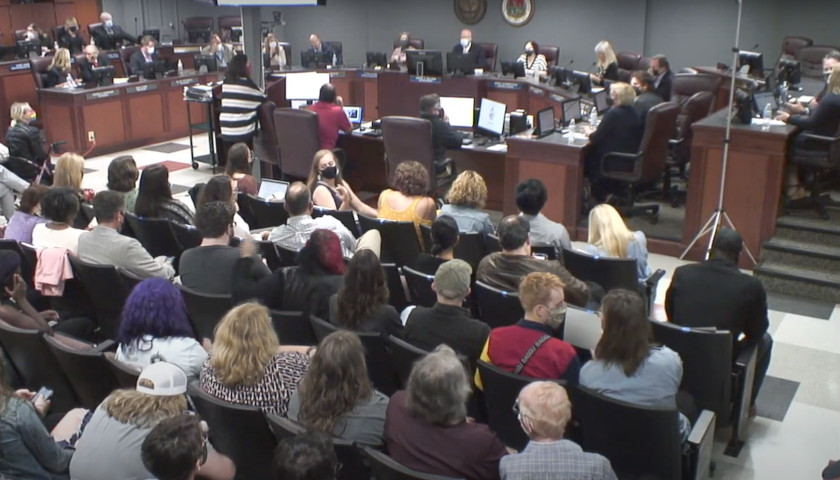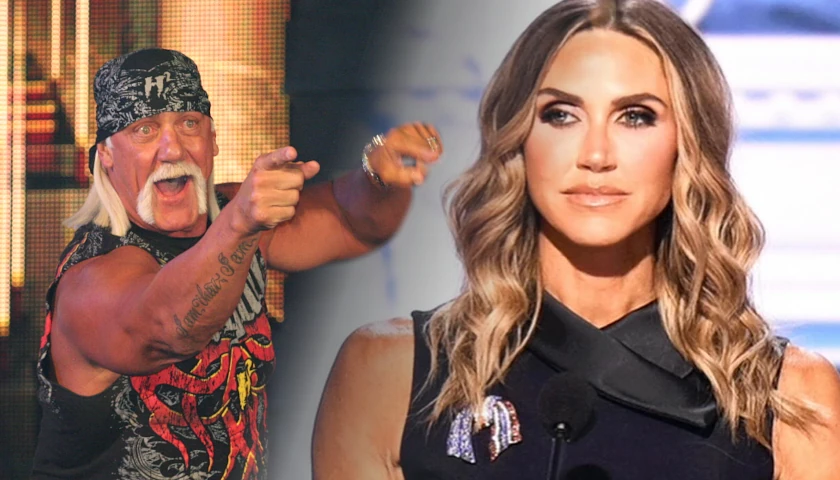The Williamson County Board of Education voted overwhelmingly Monday evening to extend its mask mandate for COVID-19 prevention until January.
At the urging of Superintendent Jason Golden, school directors initially voted on August 10 to impose the requirement on elementary-school students. On August 26, the board enjoined that mandate on middle-schoolers and high-schoolers as well. The rule would have expired this Tuesday but for the prior evening’s vote.
“The [federal Centers for Disease Control and Prevention] guidelines include masks as one of the mitigation strategies…,” Golden said, adding that the school district has also implemented other measures including virtual parent events and limitations on school visitors. “We don’t have the expertise to pinpoint what particular behavior or strategy is working, whether it’s at the community level or at the school level. But what we have seen is, in the last few weeks, our [COVID] numbers are slowly improving.”
School directors voting in favor of the extension were Eliot Mitchell (District 3), Brad Fiscus (District 4), Jennifer Aprea (District 5), Candy Emerson (District 8), Rick Wimberly (District 9), Eric Welch (District 10), K.C. Haugh (District 11) and Nancy Garrett (District 12).
Sheila Cleveland (District 7) opposed the requirement, citing Williamson County’s relatively low number of active COVID cases—1,689, which equates to 0.708 percent of the county’s population. School Directors Angela Durham (District 1), Dan Cash (District 2) and Jay Galbreath (District 6) also voted in the negative.
“There’s no rhyme or reason behind the recommendation to have the mandate,” Galbreath said. “It feels good; it feels like we’re doing something, even though we have a large number of opt-outs [as parents may obtain waivers for their kids] and even a larger number of people who are not wearing their masks in school because it’s just hard to enforce.”
Williamson County Schools’ decision is striking in light of the political environment. The county is a conservative area, having voted 62.2 percent to 36 percent for Donald Trump over Joe Biden in last year’s presidential election.
Much of the public’s small-government and anti-mask sentiment became apparent in many comments offered by parents at Monday’s meeting.
“You recommended masks on my kids while hypocritically not wearing one yourself, as did half of you who voted to mask our kids,” said one mother, Shelby Rollins, referring to the mandate’s original vote. “[Jennifer Aprea], at that meeting, you said parent choice is great until my choice to not mask my kid negatively impacts your family; therefore, mask up. This argument… doesn’t work in reverse: I cannot choose to not mask my child but you can choose to mask my child? [This] negatively impacts my family…. All mandates say that I don’t get to choose but the ruling class does.”
Rollins pointed out that, during the first week of the fall semester, over 70 percent of students opted to forgo face coverings.
John Attard rose attested to losing his niece to suicide only one day earlier and exhorted board members to consider the psychological impact that children and teens endure when asked to socialize without seeing each other’s faces.
“[Mask opponents] have provided this board with scientific information on the fact that masks do not work and on the negative consequences of mask-wearing, both medically and psychologically, all of which you have shamefully dismissed with admittedly no expertise to do so and declaring a lack of time and resources on this crucial matter,” he said.
One medical scholar who has argued that harms result from masking children, particularly educationally and psychologically, is epidemiologist Vinay Prasad of the University of California-San Francisco.
“States and communities that are considering masking policies just to be safe should recognize that being overly cautious has a cost, while the benefits are uncertain,” Prasad recently wrote in The Atlantic.
Attard and others admonished the board that upset voters will penalize pro-mask board members who run for reelection. Votes for school director in even-numbered districts will take place next year.
Some parents showed up to support requiring masks and limiting waivers to medical exceptions.
Angela DeYoung, a mother of two, told attendees that her high-schoolers are displeased with the number of students who, unlike them, choose to go unmasked.
“When they go and perform at this [honor-roll] level of academia and they go to school and they see their peers not wearing masks, even though they’re taking their individual responsibility for their own personal health, there is a mental impact that my children are facing as a result of other children not caring enough…,” she said.
– – –
Bradley Vasoli is a reporter at The Tennessee Star and The Star News Network. Follow Brad on Twitter at @BVasoli. Email tips to [email protected].








